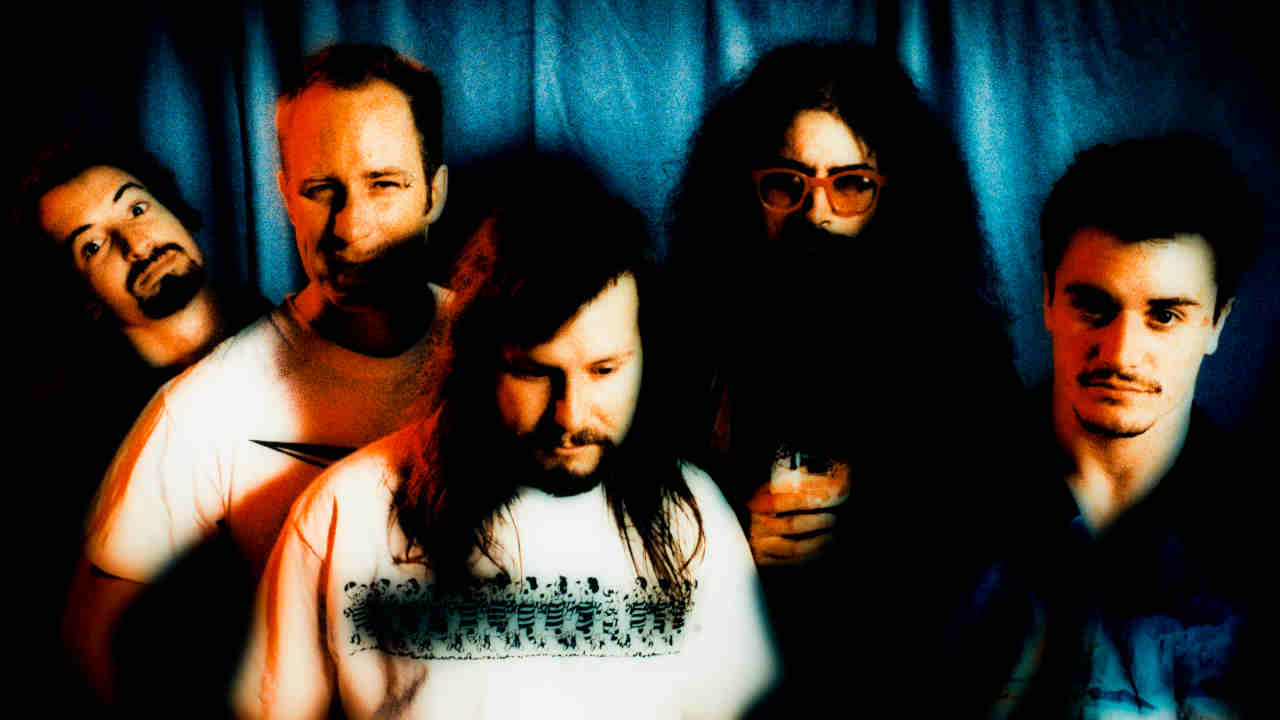Failure: On The Road To Redemption
Ken Andrews on how grunge and drugs killed Failure before family brought them back together

“Were we the right band at the wrong time? Yes, definitely.” For the first time in our interview today, Failure vocalist/bassist Ken Andrews shoots back his answer immediately. Usually each question would be chewed over and considered deeply as Andrews ponders the many twists and turns that led him down the path of Failure’s unique story. He responds in an honest and articulate way, his replies are much like his band; refreshing, unique and intelligent. But when asked if Failure would have thrived in a different musical climate to the grunge boom in which they found themselves surrounded by in the early ‘90s, the answer is instant.
“It was a good period for some bands, but not to us,” begins Ken. “Our sound was confusing to a lot of people. It was confusing to records labels, it was confusing to press and it was confusing to a lot of fans. We did have some champions at our record label, and we did have some fans – Fantastic Planet (Failure’s 1996 masterpiece) sold around 75,000 records, which these days would be great, but back then though that was considered poor form, with all these bands going platinum.
“It was a struggle and we were not helped by the grunge explosion. It all happened two years after we were signed, we heard Nirvana when we were writing for our second album and we thought it was awesome, but it wasn’t an influence on us, we already had our style and sound based on older bands like Pink Floyd and The Beatles. Plus some of the more moodier stuff like The Cure, more British bands influence Failure than American bands.”
The effect that grunge, and the media’s obsession with it at the time, had on Failure amounts to so much more than just a lack of record sales. For a band so immersed in their art, the apathy that surrounded them was hard to take, and it began to drive Failure into darker territories.
“It was frustrating,” sighs Ken. “It’s one of the things that led to the disintegration of the band in the first place and drove us down the road of drug addiction. We worked so hard on Fantastic Planet – we literally lived, ate and breathed that record for the entire time we were making it, we poured everything we had into it for the better part of a year. And when we turned it in the label literally weren’t interested because they were trying to sell themselves to a bigger label, so we were told that this new label would own our contracts and that they would have the final decision as to whether or not the album comes out.
“We had just finished the most important album of our career, we’re in our mid-20s, we were moved over to Warner and the album ended up coming out eighteen months after we had finished it – we were just crushed. By this point the band was awash with drug addiction and personal problems, and we were still suffering from not being part of the grunge thing. Warner said they wanted another album from us, but I just told them that, at this point, the band was too far gone with addiction. So I broke the band up in November ’97.”
It’s not a happy tale, but it wasn’t all bad for Failure at that time. During their infancy they would strike up a friendship with a band that would resonate still to this very day.
Sign up below to get the latest from Metal Hammer, plus exclusive special offers, direct to your inbox!
“Then we had this connection with Tool,” Ken says, “another tangent of the whole thing. We liked them because we felt they weren’t doing typical metal at all. We felt that they were metal at their core, in the broadest sense of the word, but they were trying to do something a bit more creative with it. But ultimately their fans had a hard time with us because we were more pop, our arrangements were more involved but they were closer to something like The Beatles rather than that long, proggy rock stuff that Tool was doing. Nevertheless we had this connection, we both got signed around the same time and were out playing shows with them from very early on.”
And Maynard James Keenan himself has spoken of his love for Failure recently, citing them as, not just an influence, but the sole reason for Tool finding their sound. He’s not alone either, everyone from Chino Moreno of Deftones to Paramore’s Hayley Williams (who claimed Failure are the reason she wanted to start a band) have publicly praised Failure. Limp Bizkit’s Wes Borland even offered to open for the band for free with his new act Queen Kwong at their recent London show – it’s a pill that is bittersweet for Ken.
“It’s great now,” he smiles. “All these artists coming out and telling people how much they love the band, it feels really awesome.
“The feeling now is definitely a redemptive feeling, all the fans are understanding it now and that’s very rewarding. But we had to go through so much to get here, that’s the frustrating thing.”
But, whatever the reason, it was enough to inspire Failure to reform at the end of 2013 with their classic line-up of Ken, guitarist Greg Edwards and drummer Kellii Scott. Their first album in 19 years, The Heart Is A Monster, will arrive on 30th June, an 18-track, sprawling, stunner of a record that is, in Ken’s words, a “worthy follow up to Fantastic Planet”. In fact, even taking into account the new album from returning heroes Faith No More, this might be the best comeback of 2015.
“We didn’t want to comeback and tarnish our legacy,” says Ken. “We don’t need to do this. So if we were going to release something then it had to be on par with what we had done on Fantastic Planet. Otherwise what is the point? And it was liberating in a way, because no one had cared about us before so why would we worry and pander to people now?”
The one wall that all bands have to scale in setting up a reunion is the worry of past problems rearing their head again. In Failure’s case, that is a pretty steep wall…
“It was huge,” sighs Ken. “and that’s why it took so long. On paper it could have happened a long time ago, but it really took a while for Greg and I to become friends again, to build up that trust enough to where we could go back into the studio and make music again.”
And it wasn’t music itself that finally bonded the two.
“One of the key things that happened,” Ken smiles, “was having our first children a few months apart from each other. We had started talking again, but this was where we really bonded. If you are sharing that experience for the first time with someone it can really bring you closer together. And that for me really build my trust up in him again.”
And so, finally, this most original of bands are experiencing the kind of commercial and critical acceptance that alluded them for so long. Ken points to the internet as the most important tool for the band to be able to exist and function in a DIY manner, which is where we ask him if Failure were the right band at the wrong time. He is, of course, in no doubt. Do yourself, and them, a favour; don’t miss out second time round.
The Heart Is A Monster is out 30th June. Pre-order now via Pledge Music.

Stephen joined the Louder team as a co-host of the Metal Hammer Podcast in late 2011, eventually becoming a regular contributor to the magazine. He has since written hundreds of articles for Metal Hammer, Classic Rock and Louder, specialising in punk, hardcore and 90s metal. He also presents the Trve. Cvlt. Pop! podcast with Gaz Jones and makes regular appearances on the Bangers And Most podcast.
